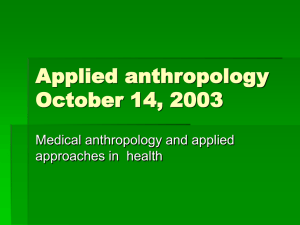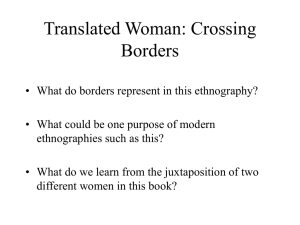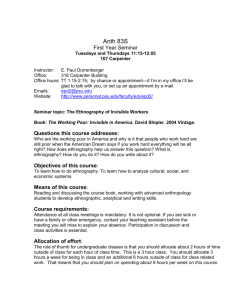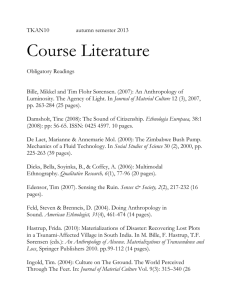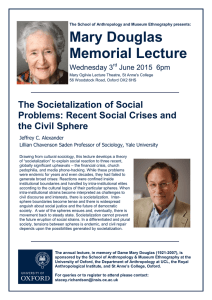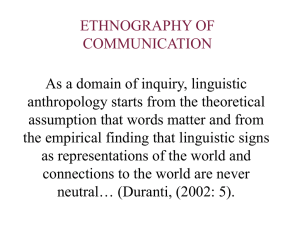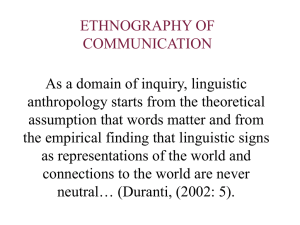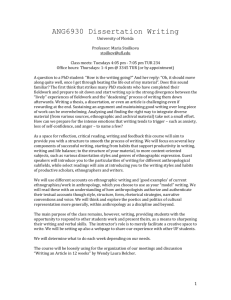Defense and Illustration of Ethnography
advertisement
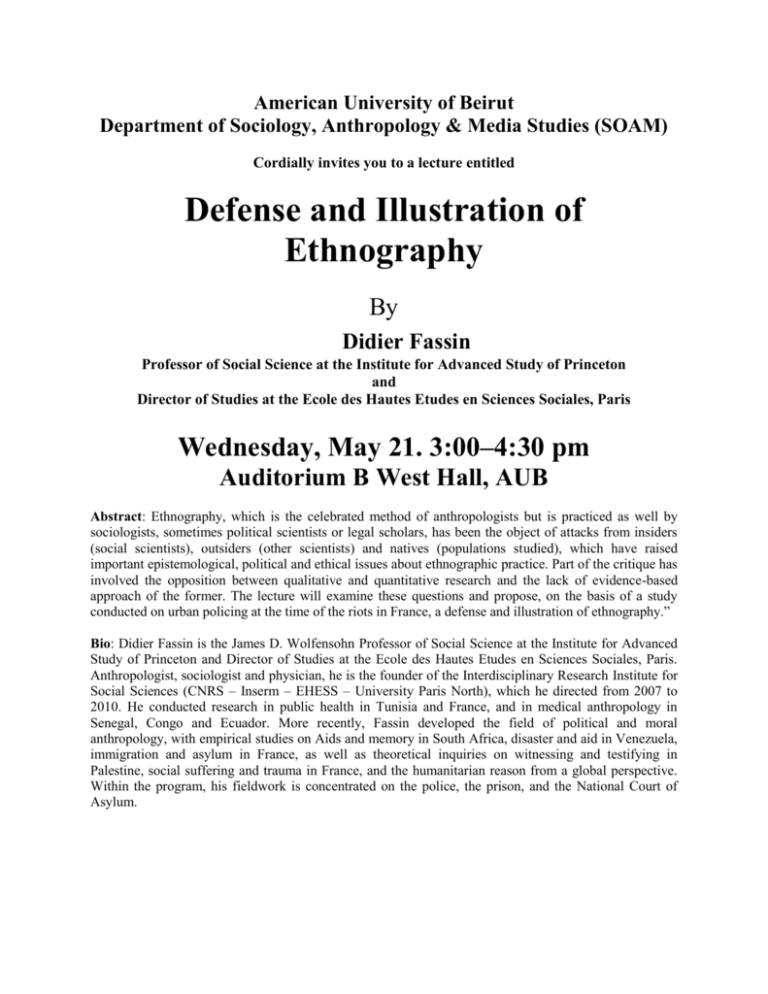
American University of Beirut Department of Sociology, Anthropology & Media Studies (SOAM) Cordially invites you to a lecture entitled Defense and Illustration of Ethnography By Didier Fassin Professor of Social Science at the Institute for Advanced Study of Princeton and Director of Studies at the Ecole des Hautes Etudes en Sciences Sociales, Paris Wednesday, May 21. 3:00–4:30 pm Auditorium B West Hall, AUB Abstract: Ethnography, which is the celebrated method of anthropologists but is practiced as well by sociologists, sometimes political scientists or legal scholars, has been the object of attacks from insiders (social scientists), outsiders (other scientists) and natives (populations studied), which have raised important epistemological, political and ethical issues about ethnographic practice. Part of the critique has involved the opposition between qualitative and quantitative research and the lack of evidence-based approach of the former. The lecture will examine these questions and propose, on the basis of a study conducted on urban policing at the time of the riots in France, a defense and illustration of ethnography.” Bio: Didier Fassin is the James D. Wolfensohn Professor of Social Science at the Institute for Advanced Study of Princeton and Director of Studies at the Ecole des Hautes Etudes en Sciences Sociales, Paris. Anthropologist, sociologist and physician, he is the founder of the Interdisciplinary Research Institute for Social Sciences (CNRS – Inserm – EHESS – University Paris North), which he directed from 2007 to 2010. He conducted research in public health in Tunisia and France, and in medical anthropology in Senegal, Congo and Ecuador. More recently, Fassin developed the field of political and moral anthropology, with empirical studies on Aids and memory in South Africa, disaster and aid in Venezuela, immigration and asylum in France, as well as theoretical inquiries on witnessing and testifying in Palestine, social suffering and trauma in France, and the humanitarian reason from a global perspective. Within the program, his fieldwork is concentrated on the police, the prison, and the National Court of Asylum.

